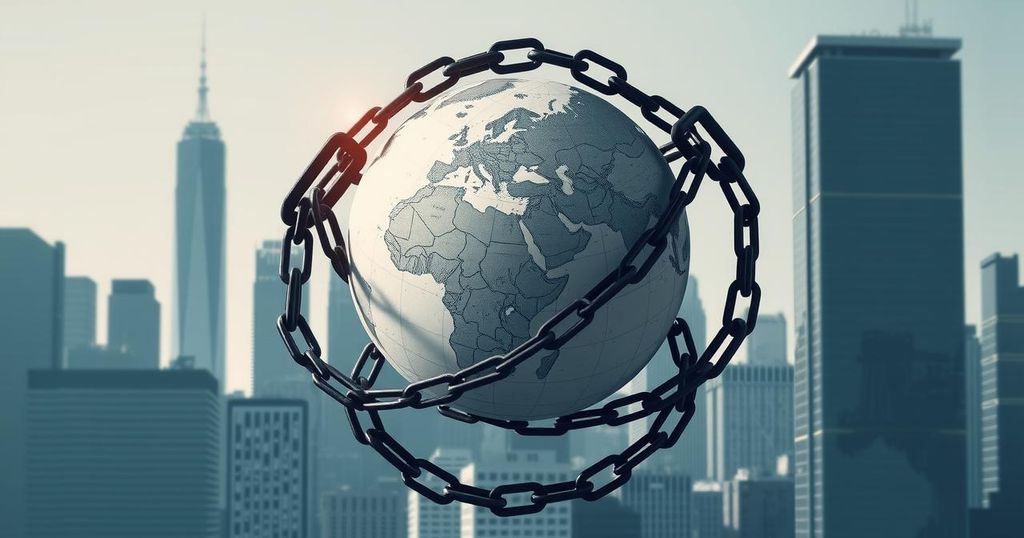US Sanctions on Sudan’s Army Chief Elicit Outcry Against Biden and UAE

The Biden administration has sanctioned Sudan’s army chief Abdel Fattah al-Burhan for attacks on civilians, amidst ongoing conflict with the RSF. The Sudanese government condemned the sanctions, attributing blame to the UAE for supplying weapons to their adversaries. Critics suggest that the sanctions do not adequately address the complexities of the war, while calls for independent investigations into chemical weapon use are increasing.
The recent imposition of sanctions by the Biden administration on Sudanese army chief Abdel Fattah al-Burhan has incited significant criticism from Sudanese officials towards both the United States and the United Arab Emirates (UAE). The sanctions, aimed at penalizing Burhan for alleged civilian attacks, followed similar measures against his rival, RSF leader Mohamed Hamdan Dagalo, amid ongoing violence in Sudan. Despite the military successes of the Sudanese army, accusations of indiscriminate attacks on civilians persist, exacerbating the humanitarian crisis in the region.
Amidst the conflict that erupted in April 2023, the US has labeled the actions of Burhan’s forces as lethal, highlighting their involvement in airstrikes against civilian infrastructure. In addition to sanctions on Burhan, the US has designated Ahmad Abdalla, a weapons supplier for the Sudanese military, thereby tightening pressures on the army’s operations and foreign support. Despite these sanctions, the Sudanese armed forces remain defiant, attributing responsibility for the war’s persistence primarily to the UAE, which has purportedly supplied arms to their rivals, the RSF.
The sanctions’ timing has raised eyebrows as they were implemented shortly before the Biden administration’s exit. Critics argue this move reflects an attempt to deflect accountability while failing to address the root causes of the conflict. Analysts emphasize the need for a nuanced approach in distinguishing the culpability of the warring factions, arguing against equating the Sudanese army with the RSF’s genocidal actions. In light of ongoing violence and human rights violations, the call for an independent investigation into the alleged use of chemical weapons is paramount.
The current situation in Sudan is marked by a protracted conflict between the Sudanese army and the RSF, with the humanitarian crisis reaching dire levels. The US’s involvement includes sanctions on key military leaders accused of targeting civilians and using chemical weapons. Human rights organizations have documented instances of violence and have recognized the RSF’s actions as genocidal. The geopolitical landscape is further complicated by the UAE’s role as a supporter of the RSF, raising concerns among US officials regarding its assurances about ceasing arms transfers to Sudanese paramilitary forces.
In summary, the US sanctions on Sudan’s army chief signify a critical response to ongoing human rights violations in Sudan. However, the fallout from these sanctions highlights the intricate web of regional alliances and the complexities of the conflict. The juxtaposition of military actions and international responses underscores the need for careful consideration of accountability as the humanitarian crisis continues to unfold.
Original Source: www.middleeasteye.net








